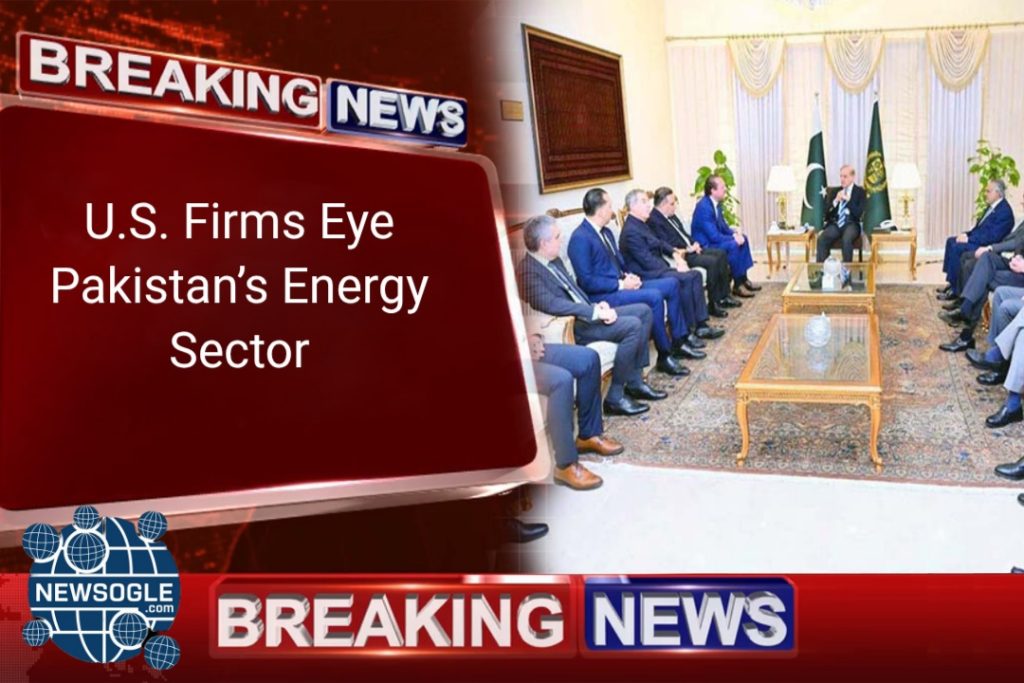
ISLAMABAD, PAKISTAN – A wave of renewed interest from U.S. energy companies is sweeping through Pakistan’s energy sector, following a recent and highly publicized claim by President Donald Trump regarding the nation’s “massive oil reserves.” While the President’s assertion has generated significant buzz and media attention, it has been met with a healthy dose of skepticism from energy experts and geologists. This burgeoning interest, however, points to a larger, more complex narrative about the future of Pakistan’s energy landscape, the role of international investment, and the strategic positioning of the country in a changing global market. The convergence of political rhetoric, economic opportunity, and geopolitical maneuvering is creating a unique and potentially transformative moment for a nation long grappling with energy shortages and a fragile economy.
The President’s Claim: A Spark of Interest
President Trump’s statement, made during a public address, was as bold as it was unexpected. He declared that Pakistan was sitting on “massive oil reserves” and that U.S. companies were now prepared to help the country tap into these resources. The claim, which was not backed by any specific data or geological reports, immediately became a talking point. For U.S. firms, however, it served as a clear signal that the political climate was favorable for investing in Pakistan. The message was simple: the U.S. administration was supportive of such ventures, and the time to explore opportunities was now.
The timing of this statement is crucial. It comes at a point when Pakistan is
actively seeking foreign direct investment to stabilize its economy and address its chronic energy crisis. For years, the country has relied heavily on imported fossil fuels, leading to a massive import bill and a drain on its foreign exchange reserves. The prospect of discovering and developing significant domestic oil and gas reserves is not just an economic aspiration; it is a national imperative. President Trump’s claim, whether geologically sound or not, has provided a political catalyst for U.S. companies to seriously consider Pakistan as a viable investment destination.
Expert Skepticism: The Reality on the Ground
While the political narrative is optimistic, the scientific community remains cautious. Energy experts and geologists have expressed doubt about the existence of “massive oil reserves” in Pakistan, at least on the scale suggested by the President. While Pakistan has been actively exploring for oil and gas for decades, the discoveries have been modest and scattered. The country has a few proven reserves, but nothing that would place it in the same league as major oil-producing nations like Saudi Arabia or Russia.
Experts point out that the geology of Pakistan, while complex and diverse, does not lend itself to large-scale, easy-to-extract oil fields. The country’s primary energy resources have been natural gas, not oil. They argue that a sudden, game-changing discovery is highly improbable, especially given the extensive exploratory work that has already been done. The skeptical view is that while there may be some undiscovered pockets of oil and gas, the idea of “massive reserves” is more of a political statement than a geological fact.
However, the experts also acknowledge that the lack of major discoveries does not mean there is no potential. The country’s offshore regions, particularly in the Arabian Sea, remain largely unexplored. Modern technology, including advanced seismic surveys and deep-sea drilling techniques, could potentially unlock resources that were previously inaccessible. The experts’ message is one of cautious optimism: while a Saudi-style oil boom is unlikely, there is still a significant opportunity for foreign companies to invest in and develop Pakistan’s existing and potential energy resources.
The Drivers of U.S. Interest: Beyond the Rhetoric
The interest of U.S. firms in Pakistan is not solely based on President Trump’s claim. Several underlying factors are driving this renewed focus.
- Geopolitical Realignment: The U.S. is increasingly focused on strengthening its relationships with strategic partners in Asia. Investing in Pakistan’s energy sector is a way to deepen economic ties and to counter the growing influence of other global powers in the region.
- Energy Security: For U.S. firms, investing in new energy markets is a way to diversify their portfolios and to secure future energy supplies. The political stability in Pakistan, while still a concern, has improved in recent years, making it a more attractive destination for long-term investments.
- Economic Incentives: The Pakistani government is offering a range of incentives to attract foreign investment in the energy sector, including tax breaks and favorable regulatory policies. These incentives make it more financially viable for U.S. firms to take the risk of exploring for new resources.
The Challenges and the Way Forward
Despite the renewed interest, there are significant challenges that U.S. firms will face when operating in Pakistan. The country’s energy sector is plagued by issues like circular debt, bureaucratic hurdles, and security concerns. These challenges will need to be addressed by the government to ensure that the investments are successful and sustainable.
The Pakistani government, for its part, needs to be proactive in creating a transparent and efficient regulatory environment. It needs to provide clear guidelines for foreign investors and to ensure that the contracts are fair and enforceable. The success of this new wave of U.S. investment will depend on the government’s ability to create a business-friendly environment that encourages long-term commitment.
In conclusion, while President Trump’s “massive oil reserves” claim may have been a rhetorical flourish, it has served as a powerful catalyst for U.S. firms to turn their attention to Pakistan’s energy sector. The renewed interest is a positive development for a nation in desperate need of foreign investment and energy security. While the geological reality may not live up to the President’s hype, the potential for new discoveries, coupled with a more favorable political climate, is creating a unique opportunity. The coming months will be crucial as U.S. firms begin their exploratory work, and the world watches to see if Pakistan’s energy landscape is about to be transformed.





